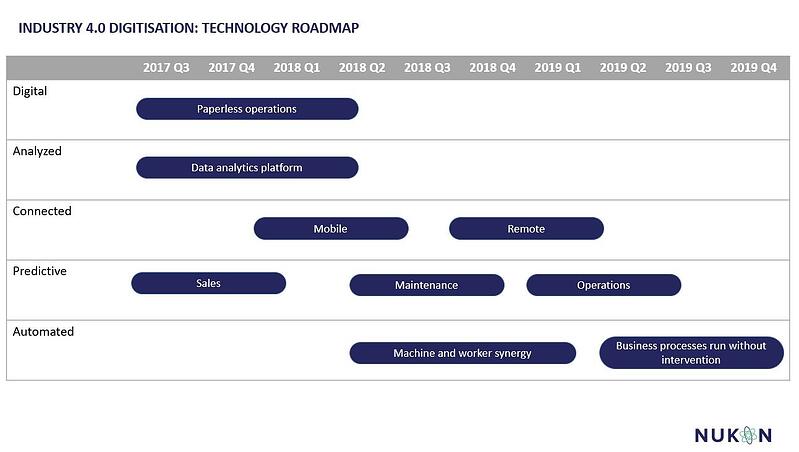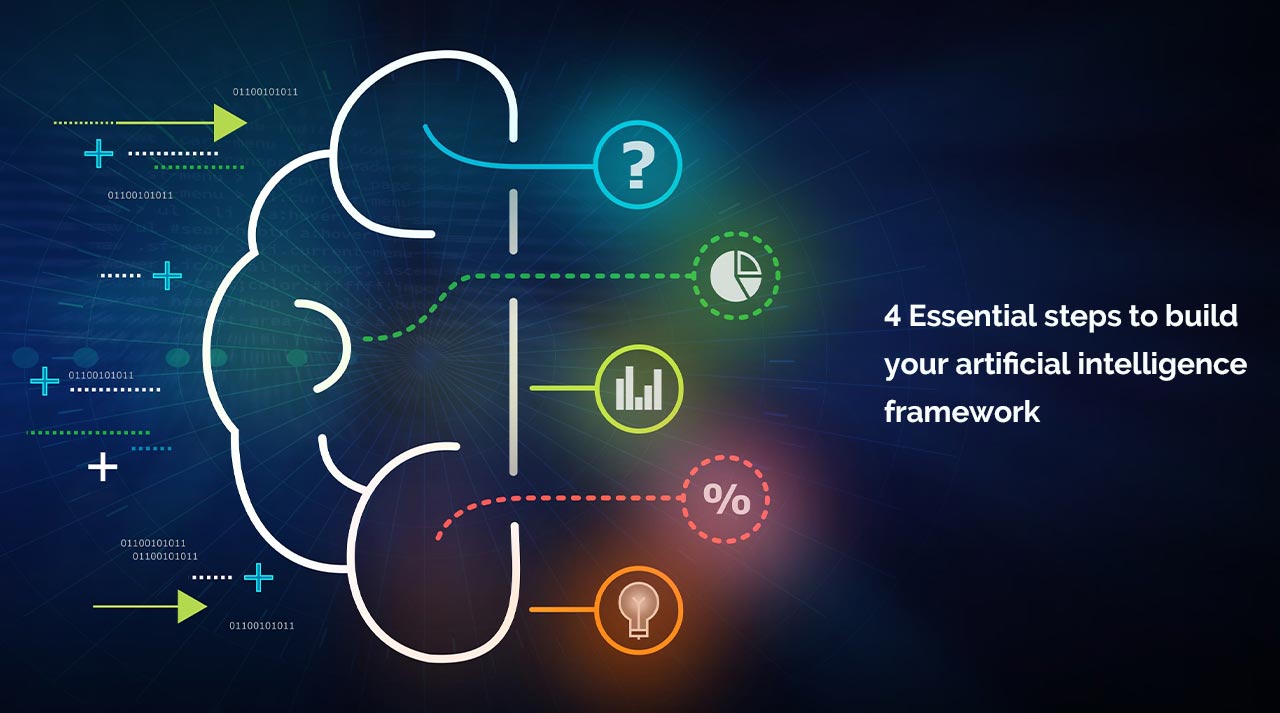Most of us are aware of the potential benefits machine learning and artificial intelligence have to offer. We’re already seeing the use of AI-enabled technology in our everyday lives, from smart assistants like Siri and Alexa to email spam filters and smart replies.
Even organisations like the NFL are starting to use artificial intelligence to analyse performance, so it’s no wonder more companies are looking to AI to get the last 5-10 percent in improvement.
While it would be great if artificial intelligence was a simple plug-in that could easily be added to your business operations, like any initiative that can transform the way you do things, your business needs a solid foundation first. That’s what we’re going to cover in this article.
If you are considering the implementation of artificial intelligence for your business, this is a must-read.
Are you ready for AI?
There are numerous articles already pointing towards a need for greater AI adoption, particularly in manufacturing. We know we should be integrating new technologies in order to remain competitive, but the number of companies actually making the investment slowed in 2018, compared with the previous year.
Before jumping in with both feet, it’s important to honestly consider if your business is ready to support the necessary change.
In the same way you should develop strong frameworks to prepare for future business growth, you need to have a solid foundation before you’ll be able to see the benefits of AI and machine learning.
The key enabler in an AI framework is your data.
This explanation from the American Academy of Actuaries puts it simply:
"The phrase 'artificial intelligence' doesn't refer to a smart machine; it refers to
that machine's ability to perceive, reason and learn,
ideally using those processes to improve its problem-solving abilities."
It’s a great reminder that machine learning and artificial intelligence are algorithms, not machines. As we’ll explain, these algorithms need lots of data to achieve an outcome!
How to prepare for AI — building your AI framework
As we explained in our previous blog on business process modelling, AI and machine learning initiatives enable businesses to achieve the final 10% of maturity in their operations. The value of collating operational data and thoroughly understanding the processes is what can truly drive transformation across your business.
That is what Nukon specialises in delivering.
1. Digitise your processes and build a dataset
A digital system is crucial if you plan to implement initiatives such as artificial intelligence. If you don’t already have a digital strategy in place, this is your next step.

A digital roadmap example, including milestones that help to keep your business on track for delivery. The project and timeline
will vary for each organisation, which is why it is important to have an idea of what you want to achieve first.
Don’t have a digital strategy yet? Read our quick guide to digitisation to get started.
Investing in your data assets is how you best position your business for future success, particularly if you intend to explore AI capabilities. Structured data is needed in order to create algorithms that drive improvements. Without the dataset, there is essentially no ‘intelligence’ to provide insight or to predict an outcome.
At Nukon, we work with manufacturers to help them understand and control their processes with data insight. In some cases, this may mean integrating data from multiple MES and ERP systems into one dashboard and breaking down information silos.
Because AI algorithms need to be trained in large amounts of company-specific data,
the ability to collate and store it has a huge impact on the success rate.
2. Understand the strategy and objectives driving AI adoption in your business
The hype generated about AI can sometimes be a little too focused on the benefits. We understand they are exciting but the reality is, without a decent framework and strategy, you probably won’t see those benefits come to life.
What is the goal for your business?
- Do you want to use pattern recognition to monitor the energy efficiency of your manufacturing plant?
- Is your goal to improve the functionality and reduce downtime of your equipment?
- To improve quality management processes?
- To identify areas where waste could be reduced?
It is incredibly important to start out with an idea of what you want to achieve from your AI project. Otherwise it can be easy to overspend, or to implement a whole range of infrastructure without seeing any return on investment or planned outcome.
Read more: Why agile project management guarantees results
3. Build your infrastructure and analytics capability
Having access to data is one hurdle. The other is having access to centralised, ample structured data. It takes a considerable amount of data to be able to develop machine learning algorithms. Feeding a machine learning model data that contains processing or sampling errors is not going to deliver results.

Think about your goal – what do you want to understand from your data?
Additionally, your analytics strategy also needs to be considered. Legacy analytics solutions may not have the right structure to support future initiatives, which is why you need to understand what data you should be capturing.
4. Consider your change management plan
Artificial intelligence in manufacturing is not a quick addition to your business, and change management is a huge part of the process. It begins with digitising, a process that will connect workers with the digital value chain and enable them to become more engaged than ever before. To successfully implement a digital transformation and AI strategy, it is essential to draw on the knowledge of your internal team.
Advances in artificial intelligence are happening all the time and there is a need to continually move forward, which is why a workplace culture that is open to change is so important. The energy you put into this change is just as important as the technologies you implement to realise the vision.
Your artificial intelligence strategy
As we’ve mentioned several times in this blog, preparing to implement an AI strategy relies heavily on having digital processes. Once you have access to real-time data from your operations, you have an opportunity to build upon this and detect trends, patterns and anomalies. This is powerful information that drives improvements and enables decision-making.
Building this framework of collecting, storing and analysing data sets your business up for future initiatives, including machine learning and AI.
Nukon is capable of harnessing a range of technologies to solve some of the most complex problems manufacturers face.
Even small improvements can have a big impact on your business and it all begins with a conversation. Get in touch with a Nukon consultant to begin your journey towards AI.





